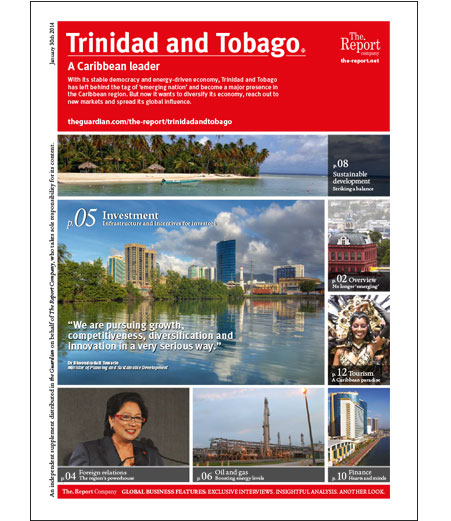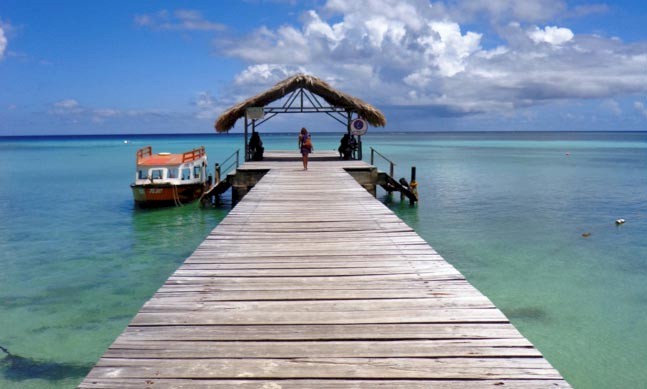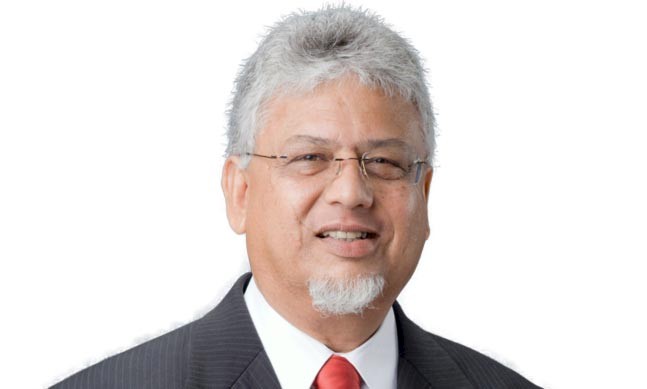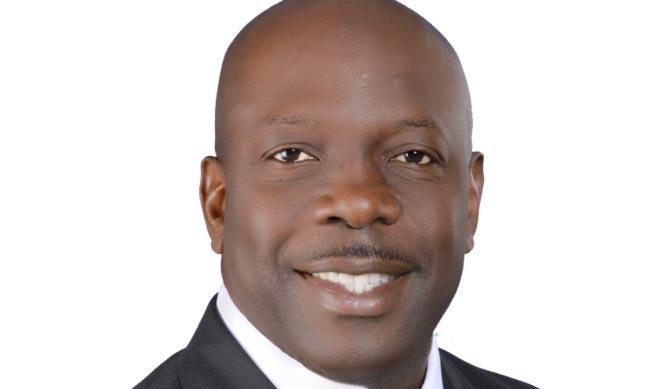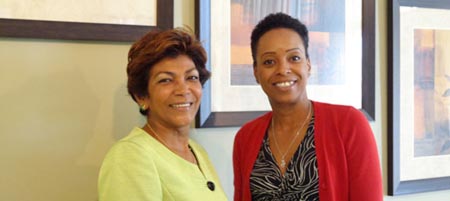
PLOTT is the network of the Powerful Ladies of Trinidad and Tobago. The group was founded on 25th November, 2011, and is made up of women who have either owned and operated their own business or been part of an executive leadership team. Run by Catherine Kumar, CEO of the chamber of commerce, and Gillian Wall, founder of IBB, PLOTT seeks to support, champion and promote women within Trinidad and Tobago.
The Report Company: What is the background of PLOTT?
Gillian Wall: In what I do day to day, through executive coaching and executive development, issues on females and their struggles and challenges within the workplace regularly came up. One of the leaders that I coach made me realise that we needed to start an initiative where I brought all of the female leaders that we work with together to more regularly discuss and debate issues on how women are represented in the business place in Trinidad and Tobago, how we can impact on our wider environment, and how we can improve our networking.
Catherine Kumar: The idea is that we can support each other and help each other. What we tend to find is that if a woman is rising we see it as if that’s at the expense of me rising, because for now there are just so few places available to women. We want to change that mind-set and support each other. We don’t need to fight each other.
We can recognise that we have talent and skills and complement each other.
GW: When we look at examples of where some female leaders have risen, often they are just like another man. Look at Margaret Thatcher and Angela Merkel, for example. We want to see more women who are comfortable as females, like Michelle Obama. You see the strength and the leadership but you still see the lady. One of the things that we discuss regularly is that what is required in leadership today is more nurturing and more guidance. Women have natural abilities in those areas and if we keep trying to be like the men we don’t bring those skills. We support the female leaders within our membership and aim to contribute more to social development within Trinidad and Tobago where women can play a significant part in taking the country forward.
CK: In taking the country forward we’re talking about our corporate social responsibility, our individual responsibility and what we can do as a group. Corporations have realised that it is important to give back to society. If you’re talking about crime but as a corporation you’re not doing anything to help the youth in the area then it’s going to come back to your organisation. We want everyone to realise that it’s not just about me but it’s about everyone in my surroundings and how we make the place where we operate better for all. The country benefits and we all benefit individually.
We didn’t want to be an exclusive membership, but at the same time we didn’t want it to be just anyone who is within their organisation at any level. We wanted to make sure that our members are influencers who bring the leadership skills.
“What is required in leadership today is more nurturing and more guidance. Women have natural abilities in those areas”Tweet This
TRC: What has been the main focus of your activities over the last two years?
GW: We’re primarily a self-managed group. We have a fixed quarterly meeting where we identify a theme and have a speaker and we then go into a discussion and debate on the topic or the theme for the evening. We then look at how that can translate into meaningful projects. Some of the topics that we have touched on have included understanding the challenges that women face in public life, the reforms needed in the justice system and the state of our prisons.
CK: We have a loud voice as far as a lobby group so we can make demands on things like prison reform.
GW: We touch also on respect for women. We have done some work to create increased awareness of the work of the rape crisis centre and to work with some of the challenges that females face in this country in terms of how men see them and disrespect them. We have a sports initiative which educates young men and helps them become more aware of how women should be treated and respected.
We also have a project which focuses on girls in ICT. We would love to see more of that, where we partner with particular sectors to bring more females into the ICT sector.
We meet with an organisation called Helping Hands and their focus is on taking women and children off the streets. We are startled by how many women and children are on the streets; one of the members of that NGO is actually a woman who lived on the streets for almost three years with her children. PLOTT presents an opportunity for NGOs to present their projects and their initiatives. There are a lot of self-directed projects. We don’t manage them all; they are thrown out there and then the individuals get together and champion the various projects and then we update on them during our quarterly meetings.
CK: Because we don’t have a secretariat, we don’t have any staff so every one of us contributes within our companies. PLOTT is just an enabler; it’s providing the environment.
“We want to see a global support network that helps women develop and support each other and impact on their respective projects, communities and countries because there’s a wider network that they can draw from.”Tweet This
TRC: How do you appraise the role of women in Trinidad and Tobago?
CK: Generally women have done pretty well in Trinidad and Tobago given that we are very much a macho society. The generation before mine were the trailblazers. Within my generation it was still very difficult and we had to really make our worth known. I don’t think we have overcome everything, which is why PLOTT is still very much needed; it still is a fight.
In politics we have done pretty well. We have had female ministers and female senators and now a female prime minister. The political parties have made it their mandate to provide some diversity in the parties. About 75 to 80 percent of the permanent secretaries, which is the highest level you can reach in the public service, are women. I would say part of it also is that government service is a lot more understanding and forgiving when you have kids and have to run home at different hours. The men who are very ambitious don’t tend stick around in the public service; they go onto private corporations.
God made us man and woman; we each have our skills. I think we are capable of doing what the men can do and they are capable of doing what women can do. We are not wanting to take over – all we are asking is to work side by side as opposed to one in front and one behind.
TRC: What is your outlook for the future and what is next for PLOTT?
GW: We have to take care of home first, so we’ve got to take care of how women interact with each other, support each other in Trinidad and Tobago and impact on our country’s future. To better be able to do that, the networking aspects need to expand beyond these shores so one of the things that we would love to see in the future is the PLOTT equivalents across the region and internationally better interact and support each other. We want to see a global support network that helps women develop and support each other and impact on their respective projects, communities and countries because there’s a wider network that they can draw from.
CK: In the short term we are trying to formalise PLOTT into a legal not for profit organisation so we are a recognised entity with proper governance rules in place. We want to do everything in a proper way which can stand scrutiny. We have begun to work on it; we just need some finishing touches.
GW: What we have is a nice little networking group that has grown and it’s so clear we could have so much more of a significant impact if we formalise all the things that we do.


